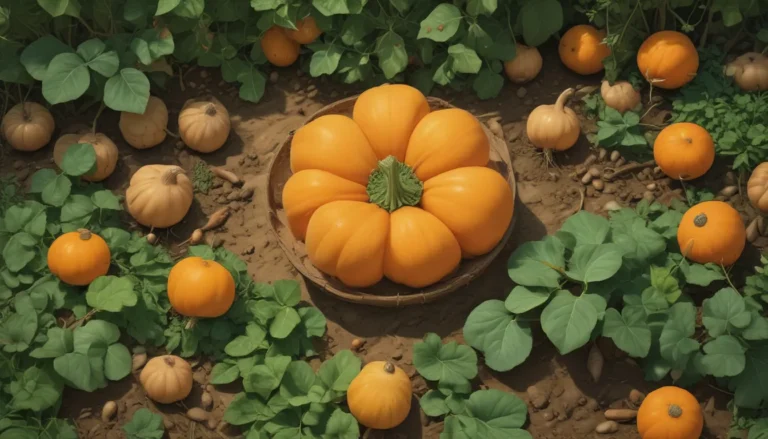The Ultimate Guide to Homegrown Sources of Vitamin E

In the world of homegrown produce, there is a hidden gem waiting to be discovered – the abundance of sources of Vitamin E. Not only do these plants provide you with a tasty and rewarding harvest, but they also offer a powerhouse of essential nutrients that are beneficial for your body’s health.
Vitamin E is a crucial nutrient that plays multiple roles in keeping our bodies healthy. From its antioxidant properties to its involvement in immune function and blood vessel dilation, it is essential to ensure you are getting an adequate amount of this vitamin in your diet.
In this comprehensive guide, we will delve into the world of Vitamin E, exploring its functions in the body, potential health benefits, and most importantly, the top garden sources that you can grow right in your backyard. So let’s get started on this journey of nourishment and vitality!
What Is Vitamin E?
Vitamin E belongs to the family of fat-soluble vitamins, along with Vitamins A, D, and K. Unlike water-soluble vitamins, fat-soluble vitamins are best absorbed when consumed alongside foods high in fat. There are eight different forms of Vitamin E, with alpha-tocopherol being the most biologically active form in our bodies.
The recommended daily allowance for adults over 19 years of age is 15 milligrams of Vitamin E. It is essential to consult with your healthcare provider before considering Vitamin E supplements to ensure you are taking the appropriate dosage.
How It Functions in the Body
As an antioxidant, Vitamin E plays a crucial role in protecting our cells against free radicals that can potentially lead to cellular damage and diseases like cancer. It is also involved in immune function, blood vessel dilation, and inhibiting blood clotting.
Potential Health Benefits
While more research is needed to establish direct causations, studies suggest that Vitamin E may help prevent chronic diseases and cognitive decline. Consuming foods rich in antioxidants, including Vitamin E, is recommended by health organizations.
Top Garden Sources
Now, let’s explore the top homegrown sources of Vitamin E that you can incorporate into your garden for a nutrient-packed harvest:
1. Sunflower Seeds
Sunflower seeds are not just a delicious snack but also a powerhouse of Vitamin E. With nearly 50 percent of the daily value of Vitamin E packed in one ounce, they make an excellent addition to your garden.
Variety: ‘Mammoth Russian’ Sunflower
2. Tree Nuts
Almonds and hazelnuts are rich sources of Vitamin E, with one-ounce servings providing a significant portion of your daily value.
Varieties: ‘All-in-One’ Almond, Hazelnut
3. Avocados
Avocados are not only delicious but also a good source of Vitamin E. One medium avocado provides 17 percent of the daily value of Vitamin E.
Variety: ‘Hass’ Avocado
4. Peanuts
Peanuts are another tasty source of Vitamin E, offering 15 percent of the daily value in one ounce.
Variety: Peanuts
5. Spinach
Spinach is a classic garden vegetable high in various nutrients, including Vitamin E. Boiled or sauteed spinach provides a good dose of Vitamin E.
Variety: ‘Baby’s Leaf’ Spinach
6. Broccoli
Broccoli is a versatile vegetable that is also a good source of Vitamin E. Raw or cooked, broccoli offers a decent amount of this essential nutrient.
Variety: ‘Calabrese’ Broccoli
Homegrown Nutrition
Harvesting your own nuts, seeds, and vegetables can be a rewarding experience, both mentally and nutritionally. When preparing your homegrown produce, consider pairing them with a source of fat to enhance the absorption of fat-soluble vitamins like Vitamin E.
By growing these top sources of Vitamin E in your garden, you can ensure a steady supply of this essential nutrient while enjoying the process of nurturing your plants to produce nutritious harvests.
In conclusion, the journey of homegrown nutrition leads to a healthier, more vibrant life. So why not roll up your sleeves, get your hands in the soil, and start growing your own sources of Vitamin E today? Your body will thank you for it!
Looking for more plant-based foods rich in essential nutrients? Explore our upcoming articles on B Vitamins, Vitamin A, and Iron-rich vegetables for a well-rounded garden-to-table experience.
Remember, the power of homegrown nutrition is in your hands. Let’s cultivate a healthier tomorrow, one garden at a time.





